Monsoon Affects Your Lungs: When to See a Pulmonologist
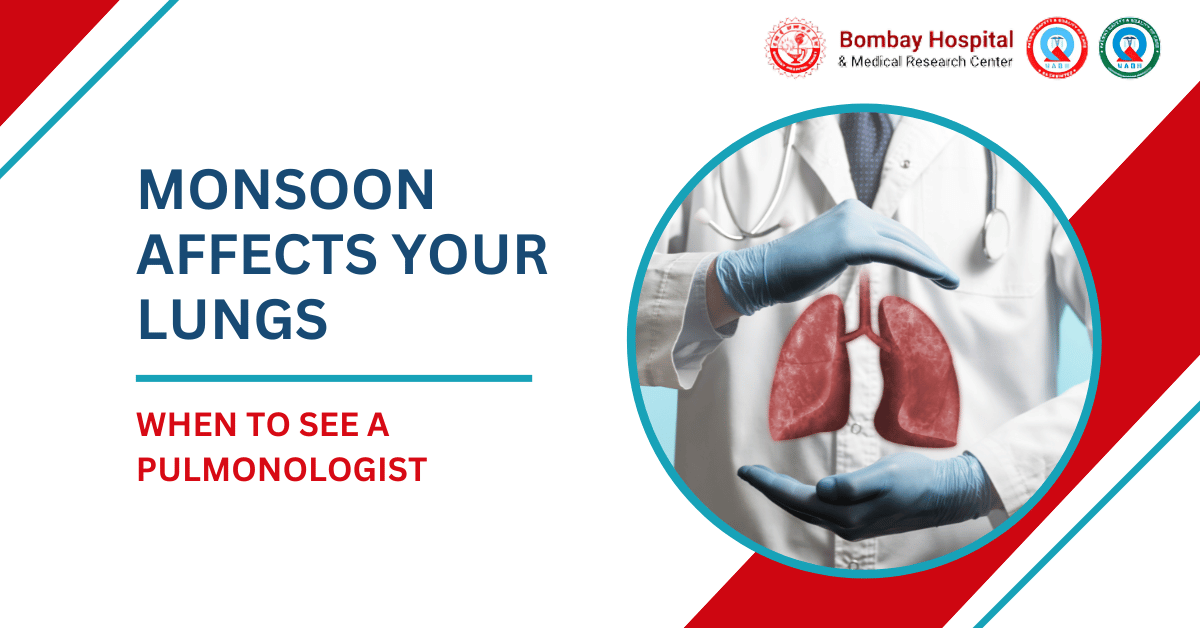
Pulmonologist Tips for Lung Health at Bombay Hospital Mumbai
The monsoon season brings relief from the summer heat, but it also comes with a set of challenges, especially for your lungs. While the cool, fresh air may seem like a blessing, the sudden changes in weather can trigger respiratory problems. It's crucial to understand how the monsoon affects your lungs and when to seek professional help. This knowledge can prevent long-term health issues, empowering you to take control of your respiratory health. In this blog, we will discuss common lung problems during the monsoon season, when it's time to consult a pulmonologist, and how to protect your lungs during this time.
How the Monsoon Affects Your Lungs
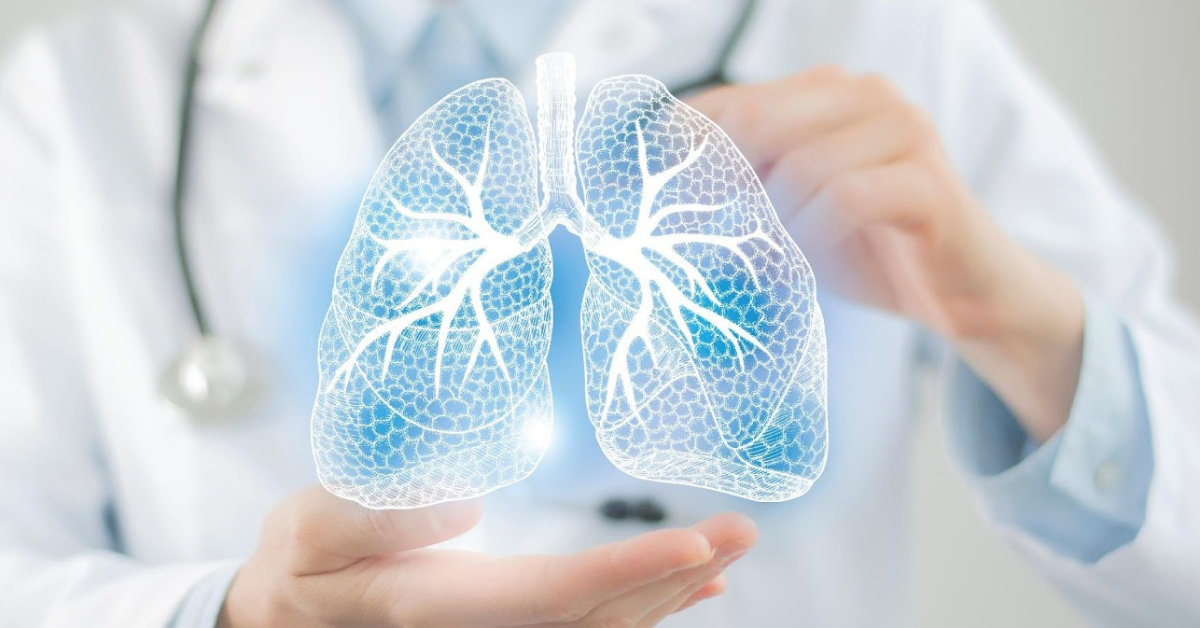
The monsoon season is characterised by high humidity, fluctuating temperatures, and increased pollution, which can negatively impact your respiratory system. Here’s how:
- Increased Humidity: The moist air during the monsoon can make it harder for your lungs to function properly, especially for individuals already suffering from respiratory conditions. The added moisture can cause the airways to constrict, making breathing more difficult.
- Airborne Allergens: With the rains comes an increase in mould, dust mites, and pollen, all of which can trigger allergic reactions or asthma attacks. Being sensitive to allergens can lead to persistent coughing, wheezing, and shortness of breath.
- Cold and Damp Weather: The chilly and damp conditions often lead to viral and bacterial infections like the flu and pneumonia, which can cause severe discomfort and health complications, particularly for older adults and those with pre-existing lung conditions.
Common Pulmonary Problems During the Monsoon
Several lung-related issues become more prevalent during the rainy season. Understanding these conditions can help you identify when you need medical attention.
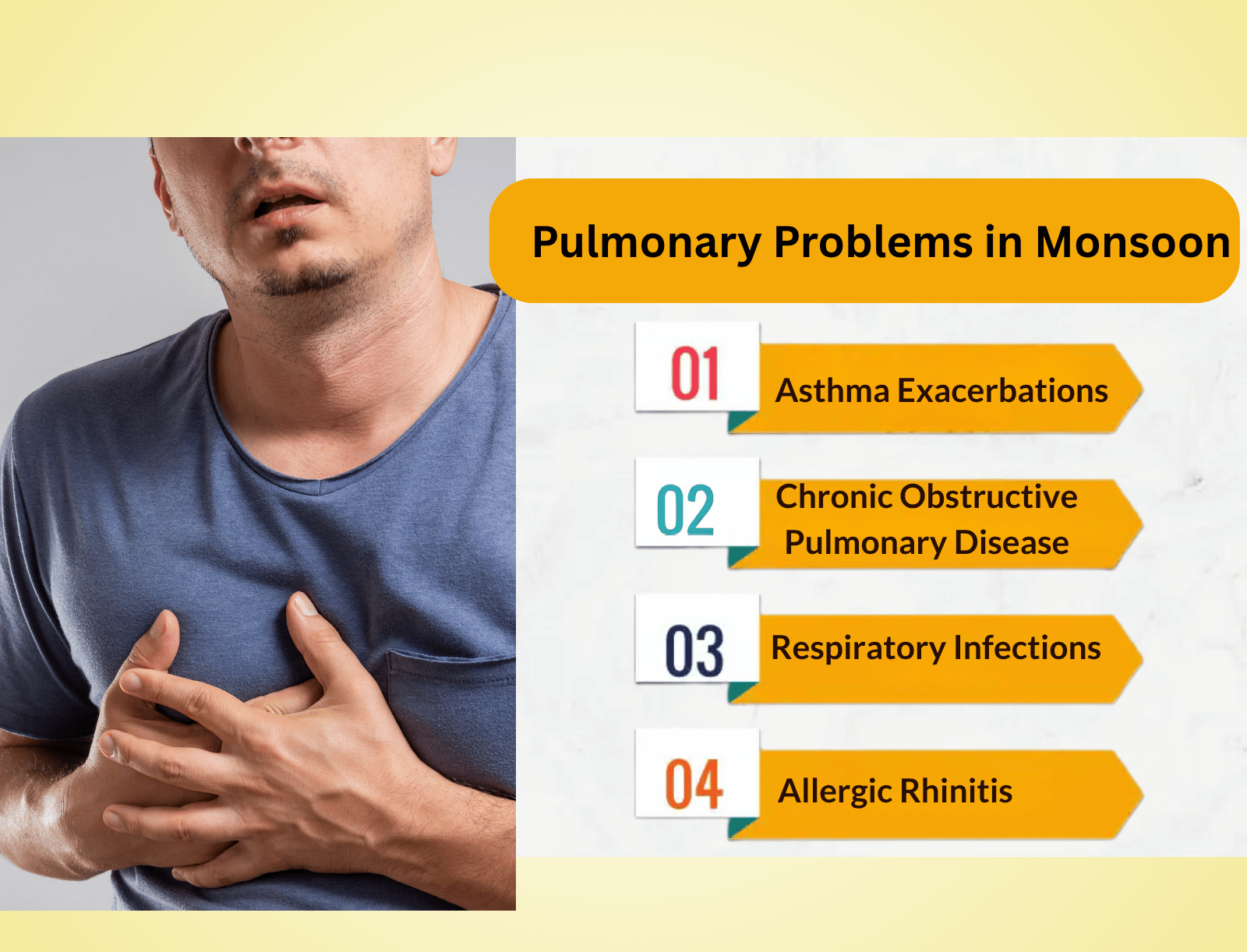
- Asthma Exacerbations: People with asthma may experience more frequent flare-ups during the monsoon. The combination of humid air, dust, and other allergens can trigger an asthma attack, making breathing harder.
- Chronic Obstructive Pulmonary Disease (COPD): Those suffering from COPD may find it harder to manage their condition during the monsoon. Cold and damp weather can cause the airways to constrict, leading to increased coughing and difficulty breathing.
- Respiratory Infections: The monsoon is a prime time for viral and bacterial infections. Pneumonia and bronchitis are common, especially for individuals with weakened immune systems or pre-existing lung conditions. These infections can cause chest pain, fever, and shortness of breath.
- Allergic Rhinitis: The increase in pollen, mould, and dust during the monsoon season can worsen the symptoms of allergic rhinitis. This includes sneezing, a runny nose, and post-nasal drip, all of which can irritate the airways and lead to respiratory discomfort.
When to See a Pulmonologist
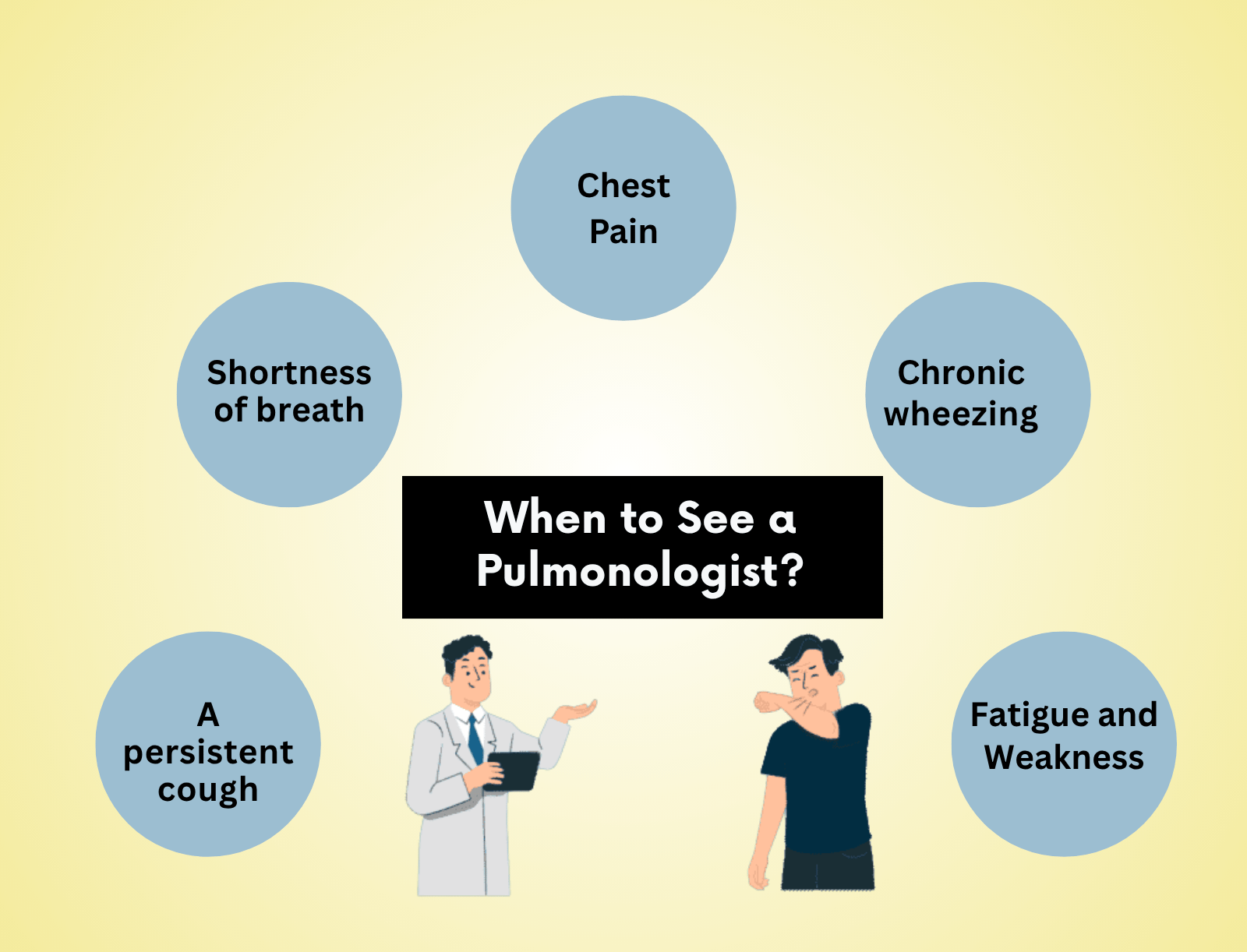
It’s essential to monitor any changes in your respiratory health during the monsoon. If you experience any of the following symptoms, it's important to remember that you're not alone. It may be time to consult a pulmonologist who can provide the support and guidance you need to manage your condition.
- Persistent Coughing: A cough that lasts more than a week or is accompanied by mucus may indicate an infection or other respiratory issues.
- Shortness of Breath: Difficulty breathing, especially during everyday activities, clearly shows that you should seek medical help.
- Chest Pain: If you experience chest pain or tightness and difficulty breathing, it could be a sign of a serious condition like pneumonia or a heart issue.
- Wheezing or Whistling Sounds: Wheezing, especially when you exhale, is often associated with asthma or other airway conditions and requires attention from a pulmonologist.
- Fatigue and Weakness: If you're feeling unusually tired or weak, especially after exertion, it may indicate a respiratory infection or flare-up of a pre-existing condition like COPD.
Protecting Your Lungs During the Monsoon
You can take several measures to protect your lungs during the rainy season. Being proactive and taking these steps can significantly reduce the risk of respiratory issues.
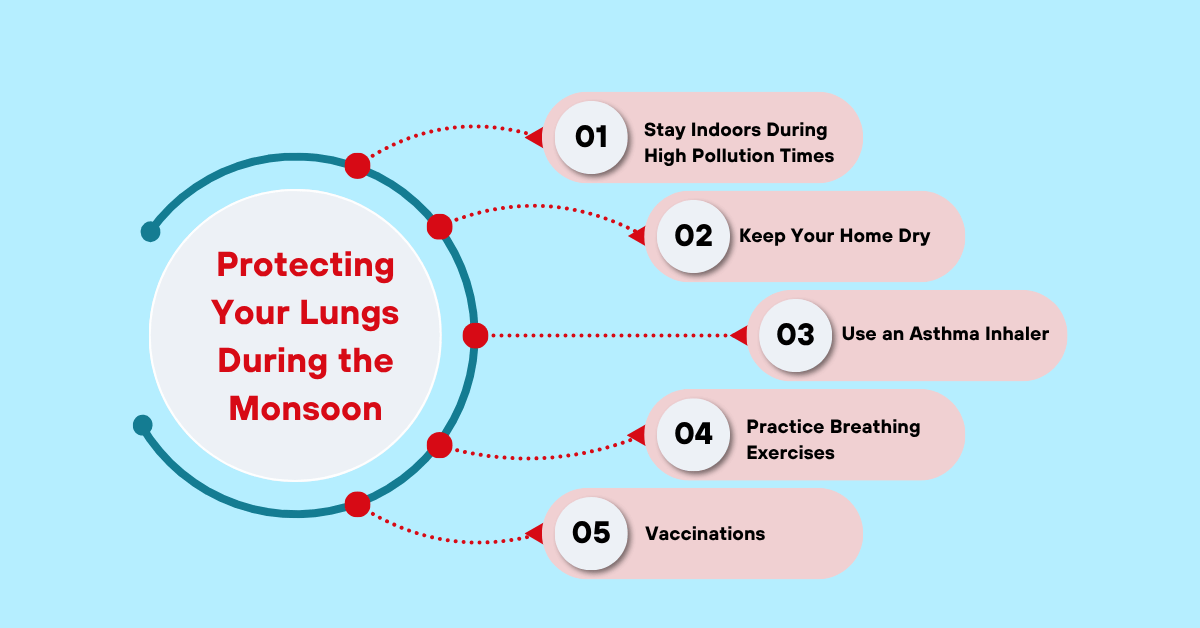
- Stay Indoors During High Pollution Times: On poor air quality, limit outdoor activities. Use an air purifier indoors to reduce the presence of allergens.
- Keep Your Home Dry: Since humidity can promote mould growth, keeping your living space dry is essential. Use dehumidifiers and clean any damp areas immediately.
- Use an Asthma Inhaler (If Prescribed): If you're prone to asthma attacks, keep your inhaler handy and follow your prescribed treatment plan during the monsoon.
- Practice Breathing Exercises: Deep breathing exercises can help maintain lung function and reduce stress on your respiratory system.
- Vaccinations: Getting vaccinated for flu and pneumonia can help reduce the risk of viral and bacterial infections during the monsoon season.
Mumbai, a hub for quality medical care in India and South Asia, is home to the Bombay Hospital and Medical Research Centre in South Mumbai, one of the city’s oldest and most respected medical institutions. With state-of-the-art infrastructure and a team of expert professionals, the hospital provides advanced pulmonary care for conditions such as asthma, COPD, pneumonia, and other lung-related issues, particularly during the monsoon season. For expert pulmonology consultations, you can visit the hospital’s dedicated pulmonology department.
12, Vitthaldas Thackersey Marg, near Liberty Cinema, New Marine Lines,
Marine Lines, Mumbai, Maharashtra 400020.
Frequently Asked Questions (FAQs)
Conclusion
The monsoon season may bring relief from the summer heat but also poses unique challenges for your lungs. Understanding the common respiratory problems associated with this time of year and recognising when to seek professional help can protect your respiratory health. If you're experiencing any symptoms like persistent coughing, wheezing, or shortness of breath, don't hesitate to consult a pulmonologist. With its specialised pulmonary care services, Bombay Hospital is here to help you manage your health and ensure your lungs remain in top condition during the rainy season.

